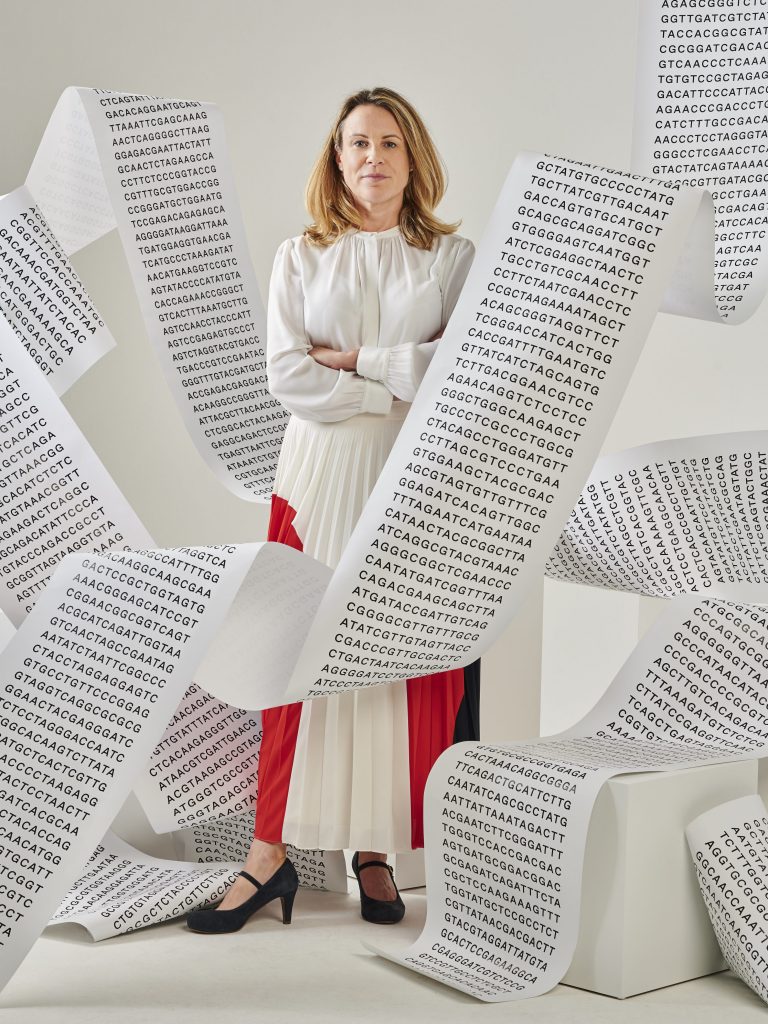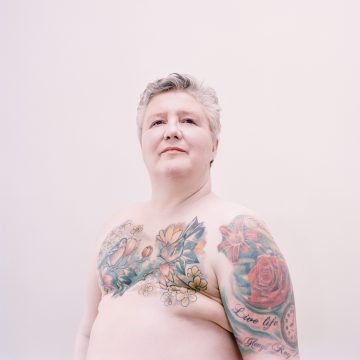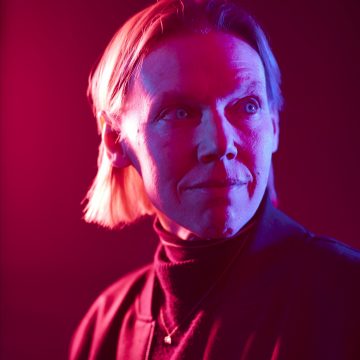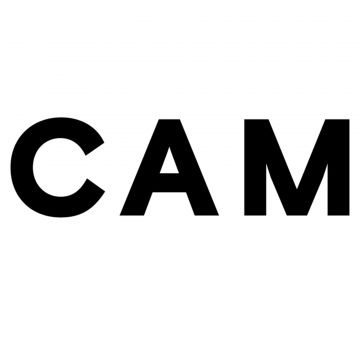The ethics of genomics
Genomics – the study of every living thing’s genetic material, and how that information is applied – has the potential to find treatments for incurable diseases. So why is the public so suspicious?
“The problem is that we, the public, just haven’t been told much about it, nor been invited in to have a conversation,” says Professor Anna Middleton, social scientist, genetic counsellor and Director of the Kavli Centre for Ethics, Science and the Public at Cambridge. “The genome is the collection of around 20,000 genes that make up each human being,” she says. “It’s what, who and why we are. And genomic medicine offers mind-blowing possibilities in the diagnosis, prediction and prevention of disease.
“So much of science is done with one missing piece – the patient.”
“If you bring in genetic information to tumour profiling, for example, you can shape exactly the kind of chemotherapy you offer,” says Middleton. “You can personalise treatment to that individual. You can end the diagnostic odyssey for children with unusual conditions, who go through repeated, sometimes invasive investigations – MRI or biochemical, for example – over many years. The vision is we will pick up disease and prevent it. But it needs to be presented carefully.”
Which is where Middleton – and the Kavli Centre – come in. Middleton studied genetics as an undergraduate, did a Master’s in genetic counselling, then discovered something during her PhD that would change the course of her career. “I was part of the team that identified ‘the deafness gene’ – at the time, we thought there was only one – in the late 1990s. It was incredibly exciting: the scientists were going to cure deafness! I went out into the community to talk to people, and got a huge shock when I discovered how frightened Deaf people were of the idea of genetics. It made me realise that so much of science is done with one missing piece – the patient. And it redirected me into a career of social justice.”

After her PhD, she became a registered genetic counsellor, working with families dealing with difficult decisions as a result of genetic testing. “It’s about helping people make sense of what’s right for them. Being curious, together.” She would go on to co-write the curriculum for genomic counselling training in England.
Your place in society impacts your trust in whether the society has your interests at heart.
Working in the NHS gave Middleton a clear understanding of what was happening on the ground, while the UK Government and industry surged ahead in its mission to become a world leader in genomic medicine. “For the past 15 years or so the Government, industry and funders have been ploughing cash into it,” says Middleton. “The rationale is to increase knowledge, power, investment and skills, and it’s worked – more and more health professionals are ordering genetic tests and using them to diagnose and predict disease as well as to define treatment.”
Nonetheless, she worries that we are powering forward before answering key questions, and in some cases, before even asking those questions. “Questions like, what are we testing for? What does an individual’s result mean for relatives? What services and support are there for families with a diagnosis, at different ages and stages?
“The problem is, we don’t exist in a theoretical framework, and we don’t live in an equal society. The reality is that there is unequal access to healthcare; there’s a postcode lottery in the NHS. If you need care for your special needs child, you have to fight to access it.”
These issues are amplified if you come from a particular background. “Deaf people I’ve worked with hold back from going to see their GP,” says Middleton, “because they’ll need a sign language interpreter, and they’re too difficult to get. It’s the same for other community groups and languages.”
Rapid advances in genomic medicine mean we are just a few years away from routine sequencing of every newborn
And your place in society impacts your trust in whether the society has your interests at heart. “When we asked people from minority ethnic groups in the UK what they thought of when they heard the word ‘genetics’, they said eugenics, crime and police databases. We need to recognise that.”
And it’s true that our genetic information is finding its way onto police databases, as we use DNA testing to map our ancestry. “The business model of some ancestry firms is to sell data to pharmaceutical companies; for others, the companies post it onto publicly accessible websites. How did police in the US catch the Golden State Killer in 2018? They used DNA from an ancestry testing site. Have we had a global conversation about that?”
Rapid advances in genomic medicine in the UK mean we are just a few years away from routine genome sequencing of each and every newborn child, says Middleton. And if we are about to sequence every newborn, how long before we sequence during pregnancy for all serious disease? This raises more urgent questions. “At what point would we test? What do we mean by serious disease? Do we mean only life-threatening disease? Or serious but actionable disease? Can you opt out of testing? You certainly can’t if you don’t know it’s happening.”
“There is such a push for shiny new technology, but I would have preferred an old-fashioned conversation”
She cites a blood spot test given to her son, Charlie, at six weeks, where she was told, ‘Congratulations, your son doesn’t have Duchenne muscular dystrophy’. “They hadn’t asked me! And I wouldn’t have wanted to know. Now, the direction of travel is to develop AI – chatbots in waiting rooms – to manage consent. But we know about the biases in AI, such as lack of diversity in who’s created the coding. There is such a push for shiny new technology, but I would have preferred an old-fashioned conversation, with a kindly nurse who had time to explain the implications of testing so I could make an informed decision about it. There is a lot that could be fixed in the NHS with a decent investment in the nursing infrastructure.”
Indeed, more thought needs to be given to how we operationalise genomic medicine, she says, from clinical pathways to upskilling staff. “The move towards ‘Generation Genome’ requires an entire shift in the patient care model. For instance, if you are found to have a lump in your breast, the breast surgeon is interested in you. But if, as part of your treatment, a genetic test shows that your breast cancer is an inherited sort, then they need to be interested in your sisters and your children too, and the NHS is not readily set up for that. If the test shows that you have a fault in the BRCA gene – a high indicator of breast cancer – whose result is that? Who should you share it with in the family? There was a case where this happened with identical twin sisters whose mum had an inherited sort of breast cancer, and one sister wanted to know whether she had the faulty gene and the other didn’t.”
Genetic counsellors have training in biomedical ethics and use this to support discussions with patients, Middleton says. “It’s the constant weighing up of doing good versus harm. In that case it was decided that the other sister would have to know as the balance was in favour of being able to save lives through treatment.”
This is a living experiment in which we will only know if we were right in 10 years’ time.
That ethical framework should also incorporate accuracy and risk, she says. “At the moment, a cluster of genes points to a risk of disease, rather than disease itself. And we’re not sure of the degree of risk. There’s a lot we don’t yet understand – we might see scary genes but no disease present, for example. And we’re not sure how genes interact with other genes, or with their environment. How much of this uncertainty should we share? This is a living experiment in which we will only know if we were right in 10 years’ time. Those at the frontline of genetics are basically giving uncertain information about life and death.”
Middleton’s work at the Kavli Centre involves communicating genetic science with humility, so that people will feel able to ask the questions that need to be asked. She leads a team of researchers and engagement experts who study how to connect science and society. She also works with experts from the worlds of film and animation. “We need to meet people where they are,” she says, “and that might be at X-Men!”
Because the questions are not a reason to stop pushing at the boundaries of science, she says, but they are a reason to bring the public in, now. “It’s why the Kavli Foundation chose us to lead a Centre at Cambridge. We presented a vision that facilitates intentional connections between scientists and members of the public, so that both can anticipate the ethical issues raised by cutting edge science – together.”
-
The Kavli Centre
A key part of the Kavli Centre’s role is involving the public in the ethical debates raised by cutting-edge science such as genomics, but also in AI and Big Data. Professor Middleton says: “It’s about closing some of the gaps that exist between healthcare and patients; science and the public; those who are building AI and those who might be most disadvantaged by it. We are creating a space and actively bringing in those whose voices we don’t often hear, so that artificial intelligence can be used to improve society, not widen the gaps. And so that we understand the barriers to coming to a shared understanding of data, as something that belongs to all of us, and serves us all.”
-







